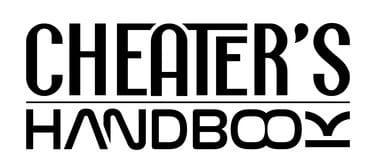Future-Proofing Your Love Life: Why Financial Compatibility Matters More Than Ever

In the past, love came first—and everything else, including money, followed later. But in 2025, the way we build relationships is evolving. Romance is still alive and well, but it’s now joined by a new kind of realism: future-proofing your love life.
This doesn’t mean turning your relationship into a business deal or sucking the joy out of early connection. It means acknowledging that compatibility is more than emotional chemistry—it’s about practical alignment too. From spending habits and saving goals to debt attitudes and financial priorities, money is increasingly viewed as a mirror for deeper values.
The shift is cultural and generational. With rising living costs, economic instability, and record levels of personal debt, people simply can’t afford to treat financial topics as taboo until year three of a relationship. Waiting too long can lead to resentment, blind spots, and hard truths uncovered only when it’s too late to pivot cleanly. The idea now isn’t to get overly serious too fast—but to be intentionally aware.
And while it’s still rare to dive into numbers during the first few dates, people are becoming more comfortable with revealing their money mindset earlier than ever. It’s not about what you earn—it’s about how you think. Are you the type to track every expense or wing it and hope for the best? Do you prioritise long-term goals, or live fully in the now? These questions, once avoided, are now helping people filter for real compatibility—before emotions overtake logic.
1. Money Isn’t Shallow—It’s Structural
If talking about finances still feels “too serious,” it’s worth asking: why? Why is something that affects every aspect of your life off-limits in romantic connection?
The truth is, money shapes far more than budgets. It determines your time, your security, your stress levels, your opportunities, and your freedom. In relationships, it affects where you live, how you parent, what kind of lifestyle you build, and how much resilience you have when life throws curveballs.
This is why financial compatibility is now seen as a pillar of relationship health, not a fringe concern. It’s not about agreeing on every single money-related decision—it’s about having a shared framework for how you approach challenges and choices. Do you both value stability? Or is one person a risk-taker while the other panics at overdraft fees? These tensions don’t just disappear with love—they multiply over time if not discussed.
Psychologist Ramani Durvasula calls this the “money personality,” and says ignoring it is one of modern dating’s biggest blind spots.
“You wouldn’t date someone long-term without knowing if they want kids or where they want to live,”
she explains.
“So why would you avoid understanding how they handle money?”
And she’s right. Future-proofing your love life doesn’t mean prying into someone’s finances—it means caring enough to know what kind of life you could be building with them. Because love might bring people together—but incompatible money habits can quietly, slowly pull them apart.
2. Red Flags Aren’t Always Obvious—But They’re Often Financial
When people talk about red flags in relationships, they tend to think of jealousy, poor communication, or different long-term goals. But one of the most underrated early warning signs is financial friction. It rarely shows up as outright conflict in the early stages—instead, it appears in casual remarks, lifestyle choices, or mismatched assumptions about what’s “normal.”
Maybe you’ve met someone who insists on extravagant dates but casually admits to living paycheck to paycheck. Or someone who jokes about maxing out credit cards but bristles at the idea of budgeting. These aren’t quirks—they’re signals. Future-proofing your love life means learning to spot these cues not with judgment, but with curiosity. What do these behaviours say about how this person deals with responsibility, stress, or impulse?
The goal isn’t to disqualify someone because they don’t have a perfect financial record. It’s about asking: are we even speaking the same money language? Do they avoid the topic entirely while you track every purchase in a spreadsheet? Do they view “saving” as optional, while you’re planning for early retirement? These differences can be fundamental, not just fixable.
And it goes both ways. You might discover that your own money habits—perhaps shaped by fear, scarcity, or past relationships—don’t align with someone else’s idea of financial freedom. That’s not a dealbreaker, but it’s a prompt for honest conversation.
This is where rethinking financial talk becomes empowering. You don’t have to wait until you’re co-signing a lease to discover someone’s relationship with money. A simple, early chat about how you both view spending, saving, or debt can open the door to deeper trust. Financial transparency builds emotional safety, not just logistical clarity.
3. Shared Goals Matter More Than Shared Salaries
It’s a common misconception that financial compatibility means earning the same amount or coming from similar backgrounds. But the truth is, you don’t need the same income—you need the same vision.
One person might be a freelancer with an unpredictable cash flow; the other might have a stable 9-to-5 with a pension plan. That can work beautifully—if both parties are aligned on what kind of future they’re working toward. Do you both value home ownership? Are you willing to prioritise travel over material purchases? Would you rather splurge on experiences or save for early retirement?
When people aren’t clear on these goals, tension creeps in. Resentment builds. And mismatched expectations begin to erode intimacy. But when there’s mutual clarity—even if you take different financial paths to get there—you build a relationship based on teamwork rather than constant negotiation.
Relationship coach Logan Ury puts it this way:
“Financial alignment is one of the most powerful forms of emotional intimacy.”
Why? Because it’s a daily expression of values. It shows how you handle responsibility, how you respond to stress, how you dream about the future. And if you’re not on the same page there, being on the same page elsewhere won’t hold the weight.
So when people talk about future-proofing your love life, they’re not advocating for net worth compatibility—they’re advocating for value compatibility. Because money isn’t about math. It’s about meaning.
4. How to Talk About Money Without Killing the Mood
Bringing up finances can feel like walking a tightrope. Go too hard, too fast, and you risk sounding intrusive or overly serious. Avoid it completely, and you risk months of false assumptions. But the truth is, talking about money doesn’t have to be uncomfortable—it just needs to be intentional.
The key is timing and tone. You don’t open with your credit score. But when the relationship begins to feel real—maybe a few weeks in, maybe a few months—you start by talking mindset, not numbers. Ask:
“Are you someone who budgets?” “Do you like planning for the future or keeping things spontaneous?”
These aren’t interrogations. They’re invitations. They open a window into how someone sees the world.
And the conversation doesn’t have to be a big sit-down summit. The best money talks often happen casually, side-by-side—while cooking, on a walk, or chatting about a friend’s financial decision. When it’s framed as “us figuring things out,” not “me checking up on you,” it becomes a trust-building moment.
You can also lead with vulnerability. Share a past money mistake. Talk about your biggest lesson or proudest financial decision. That sets the tone for mutual openness, rather than performance.
This approach works because it aligns with a bigger trend: people want emotional maturity. They’re tired of partners who can’t talk about hard things. And money, for all its history of awkwardness, is increasingly viewed as a marker of readiness—not just for adulthood, but for commitment.
The irony? Avoiding money talk often creates more tension than starting it. When handled with care, it becomes another form of intimacy—the kind that builds real connection, not just chemistry.
5. When You Avoid the Topic, You Risk the Relationship
We’ve been conditioned to think of money talk as “too intense,” especially in the early stages. But avoiding it entirely often means leaving critical parts of a person—and a potential future—unexamined. And that avoidance doesn’t protect the relationship. It delays the inevitable.
It’s one thing to discover that you and your partner have different spending habits. It’s another to realise, too late, that those habits are non-negotiable—and that they shape decisions about housing, children, lifestyle, and risk tolerance. People don’t just fall out of love—they fall out of alignment.
By the time couples get serious—moving in together, getting married, combining finances—it’s exponentially harder to course correct. And it’s not just about numbers. It’s about resentment. About one partner feeling unsupported or misunderstood. About unspoken expectations turning into patterns of avoidance and blame.
But here’s the good news: these problems are incredibly preventable. You don’t need to solve every money issue on date five. You just need to create a culture of transparency. A shared agreement that, when something big is looming—debt, a career change, a major purchase—you’ll talk about it. You’ll deal with it as a team.
That’s how people are future-proofing their love lives today. They’re not waiting for crises to test their compatibility. They’re stress-testing it gently, intentionally, while things are still light and loving. And when that happens, even hard conversations feel like acts of care.
6. Building a Love That Can Withstand Real Life
At the heart of it, future-proofing your love life is about emotional realism. It’s not about stripping romance of its spontaneity—it’s about giving that romance a solid foundation. Because even the strongest emotional connection will buckle if it can’t survive the day-to-day realities of life: rent increases, career pivots, family obligations, emergency bills.
When couples are financially aligned—or at least open about their misalignment—they’re better equipped to navigate change. They can plan without panic. They can disagree without spiralling. And they can grow without fear that one person is silently resenting the other’s choices. Financial transparency builds relational resilience, not just fiscal responsibility.
And for those who still find the idea awkward or unromantic, here’s the reframing: it’s actually one of the most romantic things you can do. Choosing to build a future with someone means choosing to face life’s messiness together. That includes love, loss, taxes, spreadsheets, and all the boring-but-beautiful compromises in between.
As the dating world matures, so do the expectations. We’re no longer looking for someone who simply “gets us.” We’re looking for someone who can build something durable with us. And that requires honesty, clarity, and the kind of conversations that last longer than butterflies.
Future-Proofing Your Love Life: The New Language of Love Includes Money
In 2025, the rules of dating have evolved—and with good reason. After years of failed relationships blamed on “miscommunication” or “growing apart,” more people are realising that emotional chemistry alone isn’t enough. Financial compatibility matters, and bringing it into the conversation early (and naturally) is one of the best ways to protect both your peace and your partnership.
But this isn’t about playing accountant in your love life. It’s about alignment. It’s about values. It’s about knowing whether the person sitting across from you dreams the same kind of dream—and has the tools and temperament to build it with you.
So no, money doesn’t kill the vibe. Silence does. Confusion does. Unspoken tension does.
The couples who thrive in the long run aren’t the ones who avoid tough topics. They’re the ones who treat those topics as invitations to grow together.
That’s how you future-proof your love life—not by predicting every problem, but by learning how to face them side by side.
My Go-To Platform for Flings, Affairs, and MILFs
Looking for top-notch flings, affairs, or MILFs? Skip the rest, AdultFriendFinder is the gold standard. Zero bots, zero fakes—just real connections. I've scored big in multiple cities. Sign up now, it's FREE!








